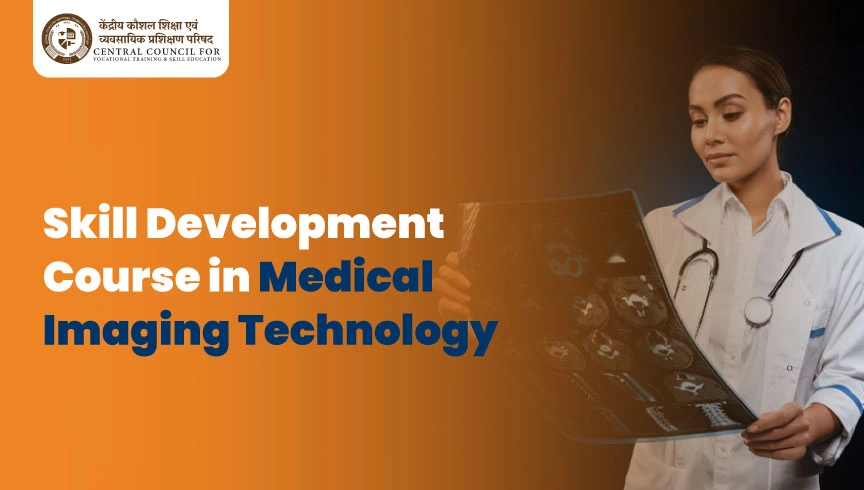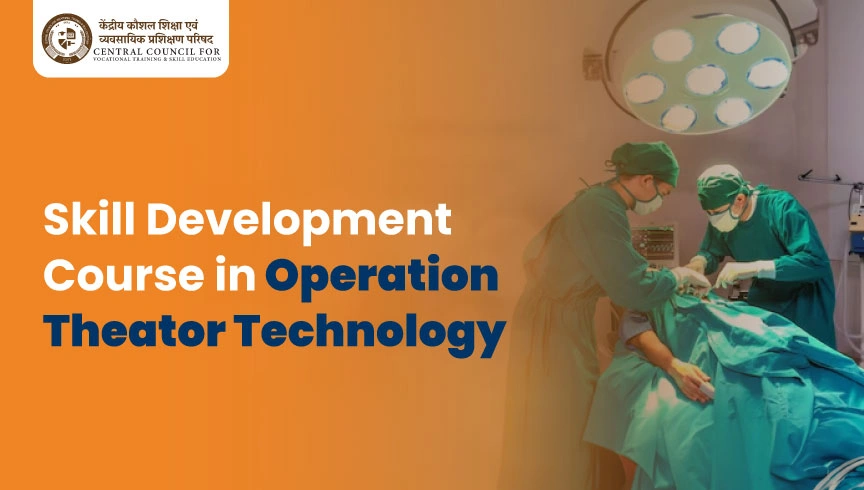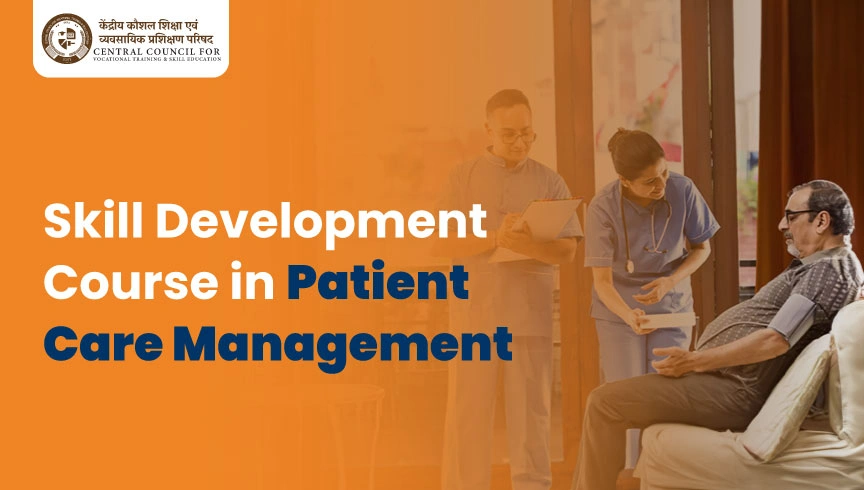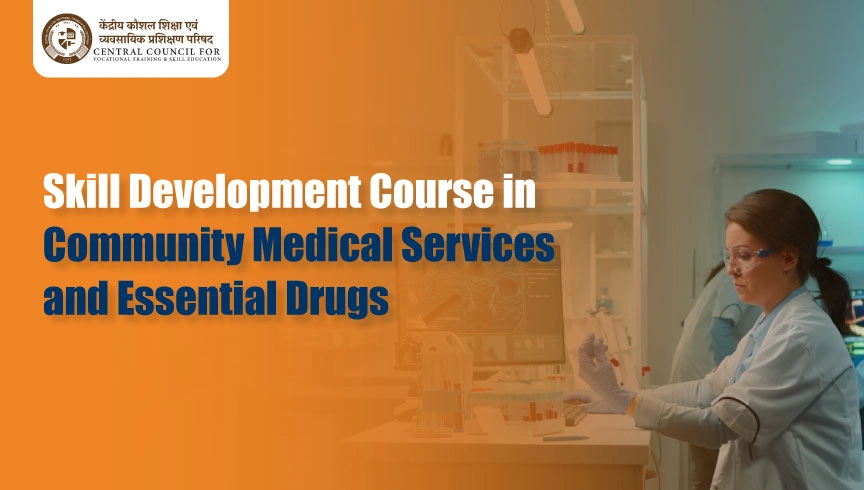- +91 8595350621
- info@ccvte.org
- C4/97B, Keshav Puram, Delhi-110035
Medical Imaging Technology

Skill Development Program in Medical Imaging Technology
Medical Imaging Technology is the field that encompasses the techniques and processes used to produce images of the human body or parts of it for clinical purposes. These techniques allow healthcare professionals to observe the structures and functions of organs and tissues non-invasively. Medical Imaging Technology involves the use of various techniques to create visual representations of the interior of a body for clinical analysis, medical intervention, and scientific research. These images provide critical information that helps in diagnosing, monitoring, and treating medical conditions. Medical Imaging Technology encompasses a range of techniques and processes used to create visual representations of the interior of a body for clinical analysis and medical intervention. It plays a crucial role in the diagnosis, monitoring, and treatment of various medical conditions.
Why did you choose Medical Imaging Technology from CCVTE?
- A skill development course in Medical Imaging Technology is specially designed for students aiming for a career in medical imaging and diagnostics.
- Upon completion, students can find work opportunities in government and private hospitals.
- Key highlights of the course include its flexibility and affordability, allowing students to complete it more quickly and at a lower cost compared to traditional full-time degree programs.
- The curriculum includes Radiology, Medical Imaging Technology, and Diagnostic Imaging, covering essential topics such as imaging techniques, radiographic procedures, diagnostic methods, and patient care.
- This comprehensive training offers a practical, cost-effective pathway to a rewarding career in medical imaging.
Specializations in Medical Imaging Technology
- Radiography
- Computed Tomography (CT)
- Magnetic Resonance Imaging (MRI)
- Ultrasound
- Nuclear Medicine
- Positron Emission Tomography (PET)
- Interventional Radiology
- Mammography
- DEXA (Dual-Energy X-ray Absorptiometry)
- Cardiac Imaging
- Vascular Imaging
- Pediatric Imaging
- Fluoroscopy
Career Opportunities
Specializing in a particular area of Medical Imaging Technology can lead to advanced career opportunities, including roles in clinical practice, research, education, and industry. Professionals with specialized expertise are often in higher demand and can pursue leadership positions within healthcare institutions or imaging centers.
These specializations not only enhance career prospects but also contribute to improving patient care through precise and advanced diagnostic capabilities.
The field of Medical Imaging Technology offers a diverse range of career paths, each contributing to improved patient care and outcomes through advanced diagnostic capabilities.
Syllabus
|
3 Month |
6 Month |
1 Year |
2 Year |
|
Introduction to Medical Imaging |
Introduction to Medical Imaging |
Introduction to Medical Imaging |
Introduction to Medical Imaging |
|
Radiographic Techniques and Safety |
Radiographic Techniques and Safety |
Radiographic Techniques and Safety |
Radiographic Techniques and Safety |
|
Advanced Imaging Modalities |
Advanced Imaging Modalities |
Advanced Imaging Modalities |
Advanced Imaging Modalities |
|
Interventional Radiology and Professional Practice |
MRI and Ultrasound Imaging |
MRI and Ultrasound Imaging |
Radiographic Procedures and Positioning I |
|
Specialized Imaging and Nuclear Medicine |
Specialized Imaging and Nuclear Medicine |
Radiographic Procedures and Positioning II |
|
|
Radiographic Pathology |
Radiographic Pathology |
Radiographic Pathology |
|
|
Principles of Computed Tomography (CT) |
Principles of Computed Tomography (CT) |
Principles of Computed Tomography (CT) |
|
|
Interventional Radiology and Professional Practice |
CT Imaging and Techniques |
CT Imaging and Techniques |
|
|
Magnetic Resonance Imaging (MRI) Basics |
Magnetic Resonance Imaging (MRI) Basics |
||
|
Nuclear Medicine and PET |
MRI Imaging Techniques |
||
|
Nuclear Medicine Procedures |
Ultrasound Imaging Fundamentals |
||
|
Interventional Radiology and Professional Practice |
Ultrasound Imaging Applications |
||
|
Nuclear Medicine and PET |
|||
|
Nuclear Medicine Procedures |
|||
|
Interventional Radiology |
|||
|
Professional Practice and Ethics |
Top Hiring Opportunities in Medical Imaging Technology
- Hospitals and Medical Centers
- Outpatient Imaging Centers
- Specialty Clinics and Private Practices
- Research Institutions and Universities
- Mobile Imaging Services
- Veterans Affairs and Military Hospitals
- Government and Public Health Agencies
- Medical Device and Equipment Manufacturers
- Telemedicine and Teleradiology Services
- Educational Institutions
- Non-Profit Organizations and NGOs
Other Paramedical Courses Provided by CCVTE
Frequently Asked Questions
Yes, we provides hands-on training in clinical settings, internships, and laboratory work to provide practical experience with medical imaging equipment.
The duration of a Medical Imaging Technology program varies based on its level. Short-term certificate diploma programs can last from 3 to 6 months, while diploma and associate degree programs typically range from 1 to 2 years. The length depends on the program’s depth and whether it is pursued full-time or part-time.
To apply for the Medical Imaging Technology program at CCVTE, visit the CCVTE official website and fill out the online application form. Submit required documents, such as academic transcripts and a personal statement. Ensure you meet the eligibility criteria and prepare for any entrance exams or interviews if required. Detailed application guidelines are available on the CCVTE website.
Graduates of the Medical Imaging Technology program can pursue careers as Radiologic Technologists, MRI Technicians, Ultrasound Technicians, and CT Scan Technologists. They can work in hospitals, diagnostic imaging centers, outpatient care facilities, and research institutions, where they perform imaging procedures, assist in diagnoses, and ensure the safety and accuracy of imaging processes.
CCVTE offers flexible study options for the Medical Imaging Technology program, including online classes and part-time schedules. These options allow students to balance their studies with personal and professional commitments, providing access to lectures, interactive sessions, and practical training modules in a more adaptable format.



